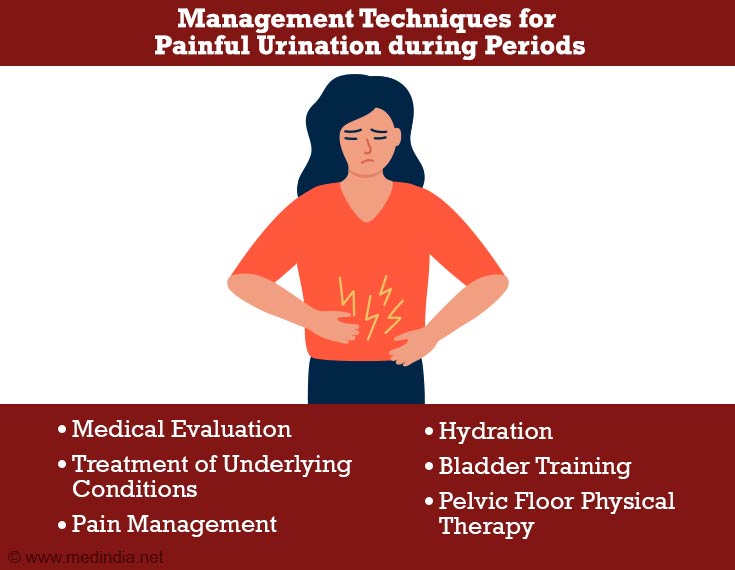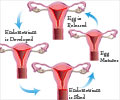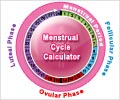- Persistent autonomic dysfunction and bladder sensitivity in primary dysmenorrhea - (https://www.ncbi.nlm.nih.gov/pmc/articles/PMC6379479/)
- Menstrual cycle affects bladder pain sensation in subjects with interstitial cystitis - (https://pubmed.ncbi.nlm.nih.gov/16217302/)
- Treatment of stable dysuria in women - (https://pubmed.ncbi.nlm.nih.gov/12621968/)
About
Did you know that the average woman will spend approximately 6.25 years of her life menstruating? While menstruation is a natural and essential part of reproductive health, it can bring along a variety of experiences, including some unexpected challenges. One such challenge that many individuals face is painful urination during periods, also known as dysuria.
Imagine this: You're already dealing with menstrual cramps, bloating, and mood swings, and suddenly, you find yourself experiencing discomfort or even pain every time you go to the bathroom. Painful urination during periods can be frustrating, uncomfortable, and even worrisome for those who experience it(1✔ ✔Trusted Source
Persistent autonomic dysfunction and bladder sensitivity in primary dysmenorrhea
Go to source).
Causes of Painful Urination During Menstruation
Did You Know?
Did you know that hormonal changes during menstruation can make individuals more susceptible to painful urination?- Interstitial Cystitis (IC): Interstitial cystitis is a chronic condition characterized by bladder pressure and pelvic pain. During menstruation, the inflammation associated with IC can exacerbate, leading to painful urination(2✔ ✔Trusted Source
Menstrual cycle affects bladder pain sensation in subjects with interstitial cystitis
Go to source). - Endometriosis: Endometriosis is a condition where tissue similar to the lining of the uterus grows outside the uterus. When endometrial tissue implants on the bladder or urethra, it can cause pain and discomfort during urination, especially during menstruation.
- Urinary Tract Infections (UTIs): UTIs are bacterial infections that commonly affect the bladder and urethra. Hormonal changes during menstruation can make individuals more susceptible to UTIs, leading to painful urination.
- Pelvic Inflammatory Disease (PID): PID is an infection of the female reproductive organs, often caused by sexually transmitted bacteria. PID can cause inflammation and scarring of the reproductive organs, leading to painful urination and other symptoms.
- Vulvodynia: Vulvodynia is a condition characterized by chronic pain in the vulvar area. During menstruation, hormonal changes can exacerbate vulvar pain, leading to discomfort during urination.

Symptoms of Painful Urination During Menstruation
- Pain or Burning Sensation: Individuals may experience a burning sensation or pain during urination, which can range from mild to severe.
- Frequency and Urgency: There may be an increased urge to urinate frequently, even if the bladder is not full.
- Discomfort in the Pelvic Area: Pain or discomfort may also be felt in the pelvic region, especially during urination.
- Blood in Urine: In severe cases, individuals may notice blood in their urine, which could indicate a more serious underlying condition such as a UTI or endometriosis.
Management of Pain during Urination While on Periods
- Medical Evaluation: Individuals experiencing painful urination during periods should seek medical evaluation to determine the underlying cause. A healthcare provider may perform physical examinations, urine tests, and imaging studies to diagnose the condition.
- Treatment of Underlying Conditions: Treatment strategies will vary depending on the underlying cause. For example, antibiotics may be prescribed for UTIs, while hormonal medications or surgery may be recommended for endometriosis.
- Pain Management:Over-the-counter pain relievers such as ibuprofen or acetaminophen may help alleviate pain and discomfort associated with painful urination.
- Hydration: Drinking plenty of water can help flush out bacteria from the urinary tract and alleviate symptoms of painful urination.
- Bladder Training: Some individuals may benefit from bladder training techniques to help improve bladder control and reduce urgency and frequency of urination.
- Pelvic Floor Physical Therapy: Pelvic floor physical therapy can help strengthen pelvic muscles and alleviate pelvic pain associated with painful urination(3✔ ✔Trusted Source
Treatment of stable dysuria in women
Go to source).

Summary
Painful urination during periods can significantly impact the quality of life for menstruating individuals. It is essential to seek medical evaluation to determine the underlying cause and develop an appropriate treatment plan.
"By understanding the causes, symptoms, and management strategies outlined in this report, individuals can take proactive steps to alleviate discomfort and improve their overall well-being during menstruation."












